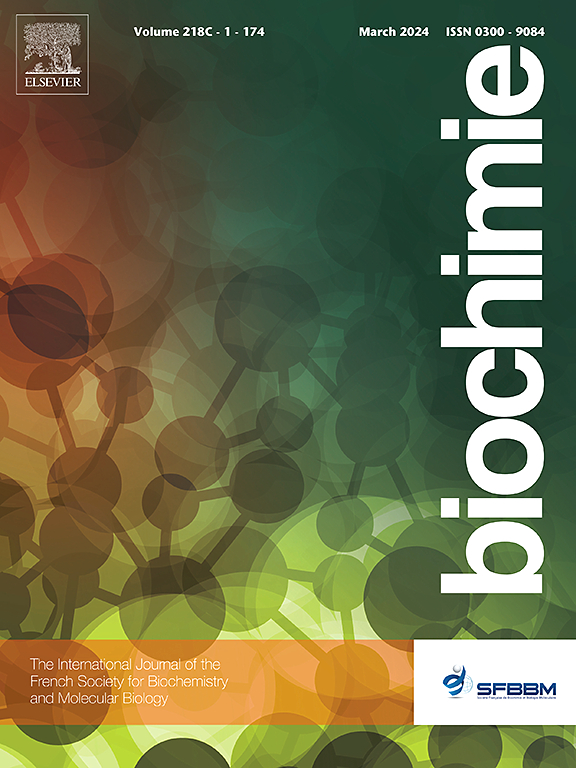Neuromesodermal progenitor derived mesenchymal stem cells: A new source for osteogenesis and adipogenesis in vitro
IF 3
3区 生物学
Q2 BIOCHEMISTRY & MOLECULAR BIOLOGY
引用次数: 0
Abstract
Derivation of adult mesenchymal stem cells (MSCs) from induced pluripotent stem cells (iPSCs) in culture might be an important approach to generate unlimited cell source for clinical therapies. Identification of appropriate progenitor populations during development is of interest in recent years to establish accurate steps in cell differentiation protocols. In the current study, iPSC derived MSCs (iMSC) via neuromesodermal progenitors (NMP) were generated using an established in vitro differentiation protocol. Osteogenic and adipogenic differentiation potential of iMSCs were evaluated by in vitro cell culture assays, gene and protein expression analysis. Protein expression profile of iMSCs and secretome of iMSCs were determined by membrane array and LC-MS/MS analysis. Conditioned medium derived from iMSCs was used in differentiation protocol of preadipocytes and preosteoblast cells. Adipogenic and osteogenic cells were derived from iMSCs in vitro. Protein profile of iMSCs were different compared to dental pulp and adipose stem cells. iMSC secretome has a more prominent role to promote adipogenesis in cultured preadipocytes. In conclusion, MSCs with an adipogenic and osteogenic differentiation capacity can be obtained from iPSC derived NMPs in vitro. Secretome of iMSCs have adiponenic potential on preadipocytes and can be a promising option for future studies.
神经中胚层祖细胞衍生的间充质干细胞:体外成骨和脂肪形成的新来源。
从诱导多能干细胞(iPSCs)中培养成体间充质干细胞(MSCs)可能是为临床治疗提供无限细胞来源的重要途径。近年来,在发育过程中鉴定适当的祖细胞群对建立细胞分化方案的准确步骤很有兴趣。在目前的研究中,通过神经中胚层祖细胞(NMP)生成iPSC衍生的间充质干细胞(iMSC),使用已建立的体外分化方案。通过体外细胞培养、基因和蛋白表达分析,评估iMSCs的成骨和成脂分化潜力。采用膜阵列法和LC-MS/MS法检测iMSCs的蛋白表达谱和分泌组。利用iMSCs提取的条件培养基进行前脂肪细胞和前成骨细胞的分化。体外培养iMSCs成脂细胞和成骨细胞。与牙髓干细胞和脂肪干细胞相比,iMSCs的蛋白谱存在差异。在培养的前脂肪细胞中,iMSC分泌组促进脂肪形成的作用更为突出。综上所述,iPSC衍生的NMPs可在体外获得具有成脂和成骨分化能力的间充质干细胞。间充质干细胞分泌组对前脂肪细胞具有脂脂性潜能,是未来研究的一个有希望的选择。
本文章由计算机程序翻译,如有差异,请以英文原文为准。
求助全文
约1分钟内获得全文
求助全文
来源期刊

Biochimie
生物-生化与分子生物学
CiteScore
7.20
自引率
2.60%
发文量
219
审稿时长
40 days
期刊介绍:
Biochimie publishes original research articles, short communications, review articles, graphical reviews, mini-reviews, and hypotheses in the broad areas of biology, including biochemistry, enzymology, molecular and cell biology, metabolic regulation, genetics, immunology, microbiology, structural biology, genomics, proteomics, and molecular mechanisms of disease. Biochimie publishes exclusively in English.
Articles are subject to peer review, and must satisfy the requirements of originality, high scientific integrity and general interest to a broad range of readers. Submissions that are judged to be of sound scientific and technical quality but do not fully satisfy the requirements for publication in Biochimie may benefit from a transfer service to a more suitable journal within the same subject area.
 求助内容:
求助内容: 应助结果提醒方式:
应助结果提醒方式:


